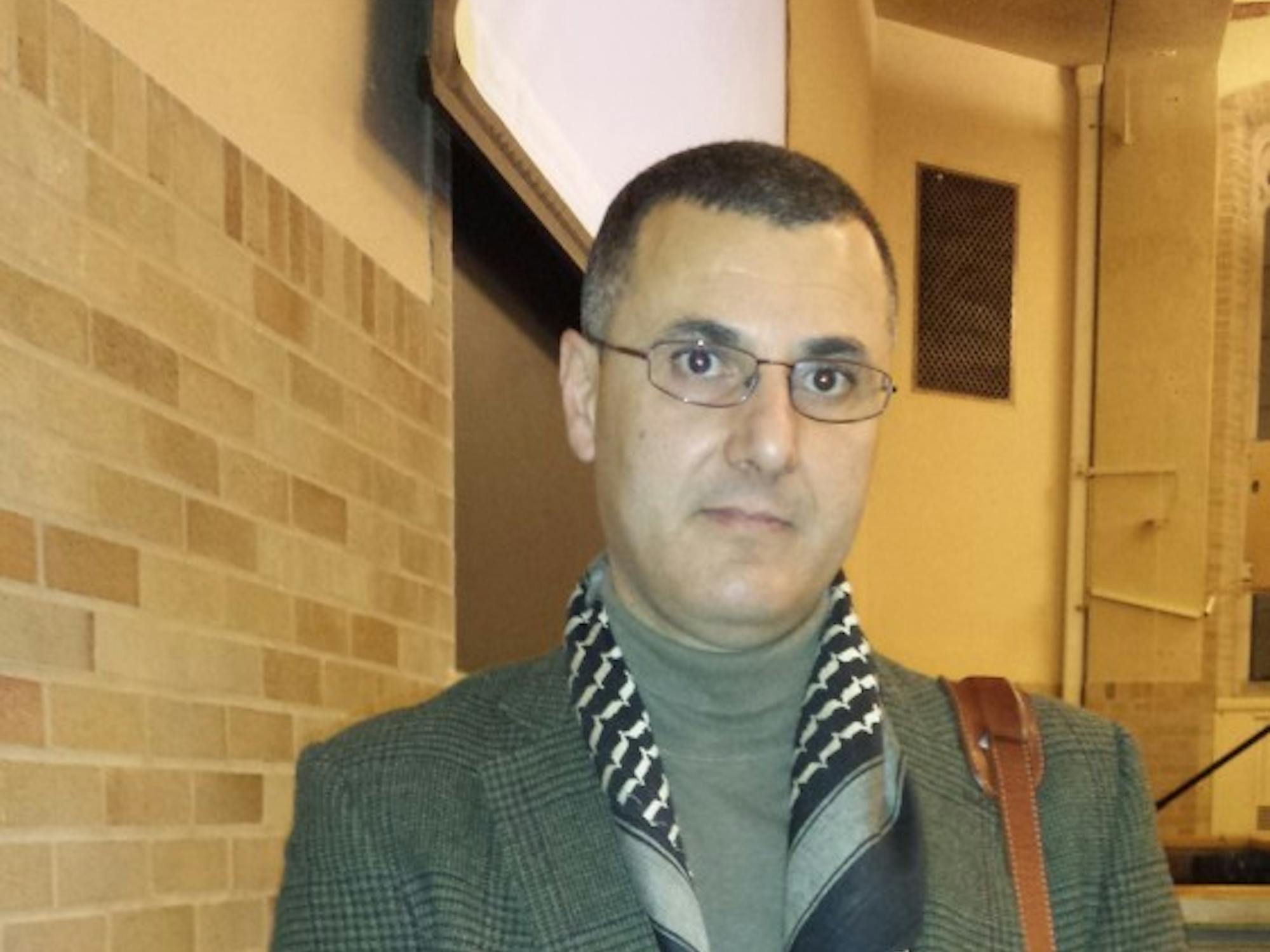Boycott, Divestment and Sanctions (BDS) movement co-founder Omar Barghouti spoke in Ann Arbor on Friday about why Palestinian civil societies ask for global solidarity.
Barghouti is a human rights activist and a founding member of the Palestinian Campaign for the Academic and Cultural Boycott of Israel (PACBI). He said BDS is a non-sectarian, non-denominational and non-violence and that it is not an anti-Semitic organization. Barghouti said the movement is inspired by Nelson Mandela, Martin Luther King Jr. and Mahatma Gandhi.
Barghouti expressed numerous concerns regarding the mistreatment of Palestinians throughout the Palestinian-Israeli conflict and what BDS has done to ensure a better living for Palestinians and to threaten Israeli policies toward them. The BDS movement has engaged in economic, cultural and academic institutional boycotts that were involved in violating Palestinian rights.
Barghouti spoke of not only the lack of rights among Palestinians but also the rights of the Jews versus non-Jews in the state of Israel.
“93 percent of the state land in Israel is off limits to non-Jews, so if you’re a citizen of Israel and you’re not Jewish you cannot rent or lease,” Barghouti said. “In South Africa, the comparison is it was 86 percent for whites so even less than Israel.”
Eastern Michigan University senior and international affairs major Ihsan Ghadieh said he was shocked to know Israel does not recognize “Israeli” as a nationality, as Barghouti said.
“This fact highlights the institutionalized racism embedded in the Israeli government, giving it the ability to oppress and persecute anyone based on their religious or ethnic backgrounds,” Ghadieh said.
Barghouti said education is one of the roots of resistance not given enough attention to in the media.
“In the first intifada … Israeli military authorities shut down all Palestinian universities,” Barghouti said. “And then they shut down all the Palestinian schools and kindergartens, The entire Palestinian educational system went underground.”
Ghadieh said not only was Barghouti’s lecture a great method of learning about efforts to combat the occupation and oppression Palestinians face, but intertwining with the civil rights and the South African BDS movement was important to gain support from groups familiar with the situation.
“I was amazed to know that they only have two staff members and that all the success of the BDS campaign relied solely on volunteer work,” Ghadieh said. “It’s great to know that many people, regardless of their background, are standing in solidarity with Palestinians across the world.”
Barghouti mentioned several times that being a part of the BDS movement is a moral obligation over anything and that it remains neutral in specific positions, one major position being whether a one or two-state solution is most plausible. This movement mainly focuses on respect for international law and human rights.
“The BDScampaign is a very creative mechanism used as one of the few weapons Palestinians have to change the dynamic of the conflict, and an important display of the nature of the Palestinian non-violent movement towards peace,” Ghadieh said. “Not only does it make it hard for companies to conduct business in Israel without thinking about precautions to ensure that they are not aiding the occupation, it raises a lot of awareness about the conflict simply by exposing companies and states that are complicit in the occupation.”
Barghouti cleared up misconceptions of the movement, some being people viewing it as a boycott of Jews or promoting revenge versus justice. In the beginning of his lecture, he said BDS has Israeli partners, which helps the effectiveness in boycotting from within.
He said this movement is not exclusive to anyone as long as they advocate for human rights, equality and justice.
“Without equality, nothing can be discussed,” Barghouti said.
Jenna Hamed, junior and president of the EMU Middle Eastern Student Association (MESA), said the power of knowledge is underrated and enlightening our peers on unjust situations all over the world will spread due to the rise of social media. She said social media plays a large part in revolutions all over the world, which are mostly run by the youth.
“With the resources of awesome campaigns like BDS mixed with the enthusiasm of the young and educated college kids, pretty much anything is possible, that’s what MESA is trying to achieve,” Hamed said. “[MESA] brings together the passionate individuals who are concerned with what’s going on abroad and we bring those issues to the surface for everyone on campus too see. We also want people to realize that what goes on in the Middle East does in fact affect us as Americans.”
Barghouti quoted Desmond Tutu’s “we do not want our chains comfortable, we want them removed” explaining that this is taken to the heart of BDS to promote justice.
Ghadieh said Palestinians have the knowledge, will and skill to create sustainable economic growth and the potential to excel as did many countries across the world. He said they run successful businesses, spanning several countries, which provide thousands of jobs, using ASTRA of Saudi Arabia as an example being owned by a Palestinian refugee.
“They only need the opportunity to control their lives, and once they do they will excel,” Ghadieh said.










